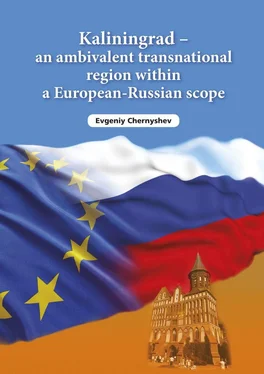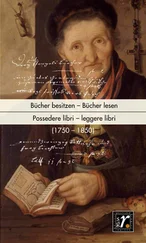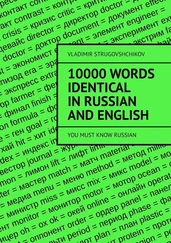As an important milestone of the study of regional «historical self-consciousness» should be considered a long-term research project of Kaliningrad historians led by Kostyashov. The large-scale collection of memories of the first Soviet immigrants was published in the Polish, Russian and German languages and became a significant example of oral history 13 13 Kostjashov, Yuri (ed.): Vostochhaja Prussija glazami sovetskih pereselencev: Pervije gody Kaliningradskoj oblasti v vospominanijach i dokumentah. Sankt-Peterburg 2002.
.
At the same time, including through this project, a gradual shift took place among the German scientists away from the extreme views of Kaliningrad as a place without a past, or vice versa, as a place without a present and future 14 14 Matthes, Eckard: Problema obrazovanija Kaliningradskoj Oblasti v nemezkojistoriografii: obzor. In: Baltijskij region v mezhdynarodnych otnochenijach v novoe i novejshee vremia: materialy mezhdynarodnoy nauchnoy konferenzii, 10—11 Oktober 2003. Kaliningrad 2003. S.195—206.
. In particular, Matthes 15 15 Matthes, Eckard: Regionales Bewusstsein der Bevölkerung im Gebiet Kaliningrad. Stufen seiner Entwicklung seit 1945. In: Matthes, Eckhard (Hrsg.): Region. Internationales Forum für lokale, regionale und globale Entwicklung. S.87— 100; Matthes, Eckhard: Verbotene Erinnerung: die Wiederentdeckung der ostpreußischen Geschichte und regionales Bewusstsein der russischen Bevölkerung in Gebiet Kaliningrad 1945—2001. Bietigheim-Bissingen 2002.
has repeatedly appealed to the theme of regional identity of residents of the Kaliningrad region.
Also I should note the high relevance of the studies of Hoppe 16 16 Hoppe, Bert: Auf den Trümmern von Königsberg. Kaliningrad 1946 – 1970. München 2000.
and Brodersen 17 17 Brodersen, Par: Die Stadt im Westen. Wie Königsberg Kaliningrad wurde. Göttingen 2008.
, who undertaken a successful attempt to reconstruct and analyze the cultural, historical and social contexts of everyday life of Kaliningradians in 1945—1970, that is, during the period of most massive ideological «processing» of the population and prior to the planned upgrading of the urban landscape of the city of Kaliningrad.
Among the studies of regional identification and consciousness of Kaliningrad in 1990-2000-ies the most relevant in terms of the objectives of this research are studies of Sezneva 18 18 Sezneva, Olga: «We have never been German’: The Economy of Digging in Russian Kaliningrad. In: Calhoun, C.; Sennet, R. (eds.): Practising Culture. London, New York 2006; Sezneva, Olga: The dual history: politics of the past in Kaliningrad, former Koenigsberg. In: Czaplicka, J.; Ruble, B.:Composing urban histories and the construction of civic identities. Washington 2003; Sezneva, Olga: Modalities of Self-understanding, Identification and Representation in the Post-1991 Kaliningrad. A Critical View, In: Kaliningrad in Europe: Perspectives from inside and outside, Lüneburg 2010.
and Browning 19 19 Browning, Christopher; Pertti, Joenniemi: The Identity of Kaliningrad: Russian, European or a Third Space? In: Tassinari, Fabrizio (ed.): The Baltic Sea Region in the European Union: Reflections on Identity, Soft-Security and Marginality. Berlin – Gdansk 2003.
.
At present, the theme of the Kaliningrad region is positioned in a few focuses of research capacity.
Firstly, from a geopolitical point of view as a distinct region, which is an enclave / exclave. In recent decades, theories of enclaves, as well as the history of their origin, development and specific problems, are subjects of many studies. The Kaliningrad region is one example of which is reviewed and analyzed in scientific body of literature. It is worth to note the studies of Vinokourov 20 20 Vinokurov, Еvgeny: Teorija anklavov. Kaliningrad 2007; Vinokurov, Evgeny: Ekonomicheskaja specializcija Kaliningradskoj oblasti. Kaliningrad 2007.
and Nis 21 21 Nies Susanne. Kaliningrad – ne edinstvennij anklav. In: Pro et Contra, Vol. 8. №1, 2003.
, which consistently develop the theoretical basis of the phenomenon of «enclaves».
Enclave territorial entities are considered as a kind of category of regions, which plays an important role at the intersection of theories of globalization and regionalism. So often enclaves/exclaves become places for application of interests of different dimensions: local, regional, national and cross-border.
The Enclave is an area or territory, which controlled from outside by motherland, an international organization or a transnational enterprise, which is lying outside the enclave. Accordingly to this definition, also Oblast’ may be an enclave: it is important that this Oblast’ is an integrated component of another state and politically controlled by this state. In this case, from the perspective of the administrative center (Moscow) such area is an exclave , but from the point of view of the surrounding states (European Union) and the international community is enclave . The state, which surrounds the enclave/exclave, is named surrounding state . The state, part of which is an enclave/exclave, is named – mother country 22 22 Ibid, p. 91.
.
The necessity for design of theoretical framework for socio-economic development of the Kaliningrad region in terms of EU and NATO enlargement to the East in the mid-2000s has led to the search for evidence-based ways to ensure stability and coexistence with neighboring states 23 23 Holtom, Paul: Kaliningrad in 2001: from Periphery to Pilot region. In: Holtom, Paul; Tassinari, Fabrizio (ed.): Russian participation in Baltic Sea region-building: a case study of Kaliningrad. Gdansk-Berlin 2002; Theisen, Heinz: Die Grenzen Europas. Die Europäische Union zwischen Erweiterung und Überdehnung. Opladen 2006.
. However, it should be taken in account that this search takes place from the perspective of the established categories of political science that preaches the classical approach to the role of state institutions and their borders as limits of political influence. The issue of the «most western region» of Russia is poorly considered in cultural studies as in Russia so in Western Europe. The focus of research aims on discourse about Kaliningrad from the standpoint of political science, which theories are seen among political actors as most applicable and practically oriented in terms of the study of the Kaliningrad exclave, as a factor of Russian foreign policy 24 24 Smorodinskaja, Natalja: Kaliningradskij eksklav: perspektiva transformacii v pilotnij region. Moscow 2001; Wellmann, Christian: Kaliningrad als Konfliktsyndrom. In: Die Friedens-Warte. Berlin 2000, №3 – 4; Major, Viktor: Kaliningrad/Königsberg: Auf dem schweren Weg zurück nach Europa: Bestandsaufnahme und Zukunftsvisionen aus einer europäischen Krisenregion. Münster 2001; Smorodinskaja, Natalja: Kaliningradskij eksklav: perspektivy transformazii v pilotnij region. Moscow 2001; Kiel international ad-hoc group of experts on Kaliningrad. Kaliningrad in Focus. Policy recommendations in the perspective of problem-solving. Schleswig-Holstein Institute for Peace Research. SСHIFF-Texte Nr.67. 2002.
.
The second focus of scientific interest can be designated as historical memory. The memory is positioned in a close relationship with migratory flows and changes that have taken place in the second half of the 20th century in the region 25 25 Berger, Stefan: Kaliningrader Identität nach dem Ende des Kalten Krieges: einige einleitende Bemerkungen. In: Berger, Stefan (Hg.): Kaliningrad in Europa. Nachbarschaftliche Perspektiven nach dem Ende des Kalten Krieges. Wiesbaden 2010.
. As known, life in the Kaliningrad Oblast was ensured by method of labor rotation. This shifting of population formed a kind of psychology with a sense of temporality that to some extent stuck in the mentality of Kaliningradians 26 26 Kostjashov, Juri: «Obratnichestvo» v processe zaselenija Kaliningradskoj oblasti v poslevojennye gody, In: Baltijckij region v istorii Rossija i Europy, Kaliningrad 2005, p. 211—219.
. This population has built the city of Kaliningrad. This process was the central point of identification of people with new place 27 27 Sezneva, Olga: Modalities of Self-understanding, Identification and Representation in the Post-1991 Kaliningrad. A Critical View. In: Berger, Stefan (Hg.): Kaliningrad in Europa. Nachbarschaftliche Perspektiven nach dem Ende des Kalten Krieges. Wiesbaden, p. 42.
.
Читать дальше











